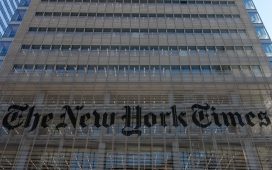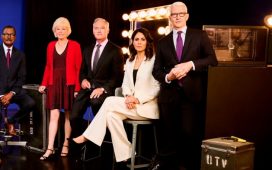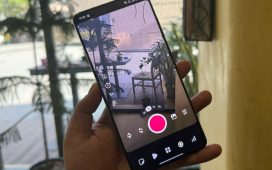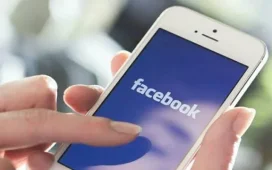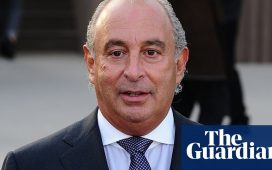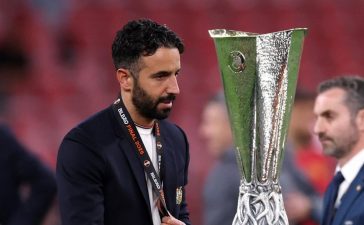LVMH, Samsung, and Coca-Cola have secured the sponsored placement of their products in previously ad-free parts of the Olympics, marking an unprecedented commercialisation by the Paris games’ organisers.
Winning athletes have been presented with Samsung smartphones to take selfies, after they receive medals carried out on Louis Vuitton trays, while competitors from some countries carried gold-coloured bottles of a Coca-Cola water brand during the opening ceremony.
The prominent placement of sponsors’ brands is a first for the Olympics, where viewers of the events and ceremonies have previously been able to see very little or no commercial branding.
But as Olympic hosts aim to rely less on taxpayers in hosting the world’s largest sporting event, they are leaning more on sponsors to foot the bill.
A group of 16 global companies, including Coca-Cola and Samsung, paid $2.3bn for exclusive worldwide marketing rights for the 2017-2021 “cycle”, a period that spans a winter and summer games. That was more than double the amount for the previous cycle; the figure for the current cycle is not known.
The product-placement push has been controversial among some sports officials and triggered debate over whether the games should preserve its ad-free traditions or follow other global sporting events, where everything from stadiums to jerseys to the field of play are seen as fair game to carry branding.
Michael Payne, former marketing director of the International Olympic Committee, said there was a “very fine line” between protecting the Olympic brand and creating new opportunities for sponsors, who always seek to “push the boundaries” on product placement.
The prominence of trunks made by Louis Vuitton, LVMH’s biggest brand, in a sequence lasting several minutes during the opening ceremony had surprised some IOC members, he said.
“How do you even begin to explain that to your other partners?” Payne said, explaining that other sponsors could possibly expect similar privileges in the future.

But Phil Andrews, chief executive of sporting body USA Fencing, said that the Paris games organisers had needed to permit more marketing for financial reasons. The IOC and International Paralympic Committee needed sponsors “to provide the reach and the funding needed so that cities and taxpayers are not left with large financial consequences in hosting the Games”, he said.
The official victory selfie is the most prominent new practice at the Paris games — after the winner’s national anthem is played, an official brings an Olympic-branded Samsung flip phone for the medallists to take a photo. Samsung told the Financial Times that while it did not pay an additional fee for the medal ceremony placement, the company began discussing it with the IOC and Paris 2024 last year. After Paris, “with the support of the IOC, we will continue to explore innovative activation opportunities for future Games,” said a spokesperson.

Other sponsors, including LVMH, sign on as domestic partners for one host city. The French luxury goods group came on board as the Paris games’ last and most prominent national sponsor, putting a much-needed €150mn into the organising committee’s budget.
The main parts of the deal were agreed between Bernard Arnault, LVMH’s chief executive and controlling shareholder; Thomas Bach, IOC president; and Tony Estanguet, Paris 2024 organising committee chair and a former Olympic champion at canoeing, at a December 2022 meeting in Paris, according to a person with knowledge of the process.
The contract, announced in July 2023, covered all points of the partnership including the opening ceremony sequence with the Louis Vuitton trunks, which the group then worked on with the opening ceremony’s creative team, the person said.
Also included in the contract were provisions to design the medals, provide trays to carry them and dress medals presenters. The torch relay stopped at several LVMH-owned hotels, the main performers in the opening ceremony wore custom Dior, and the company supplied all the alcohol for VIP venues, among other activities.

Arnault was “very pleased” with the opening ceremony and LVMH’s prominence in it, said another person close to the group. “It was a real moment of pride for our maisons [brands]”.
Estanguet said earlier this month that the host committee was “an organisation that is 95 per cent funded by private money . . . and the LVMH group, as a premium partner of Paris 2024, is on the front line”.
The Olympics remains a holdout among global sporting events in limiting advertising. Product placement had tended to be limited to outside the field of play — payments at venues must be made by Visa, clocks and scoreboards carry the Omega logo, while athletes and officials are ferried around in Toyota cars.
In contrast, major professional leagues like the English Premier League and the US National Basketball Association feature sponsor logos on player jerseys. At the football World Cup, sponsors appear on screens around the edge of the pitch during matches.
The debate on how far to push product placement at the Olympics is likely to build in the run-up to the 2028 summer games in Los Angeles, where increased commercial income is a cornerstone of the organisers’ plan. Contentious ideas up for discussion include naming rights to Olympic venues, according to three people familiar with the matter.
The IOC said it “continues to look at ways that we can provide authentic, organic ways to recognise [advertising] partners’ role in supporting the athlete and spectator experience, as well as the games operations, and enhance the staging of the Olympic Games and the promotion of the Olympic values”.
LVMH declined to comment. Coca-Cola said it “worked closely” with Paris organisers to place the gold water bottles with athletes on the opening ceremony boats and added: “We love seeing all of this year’s Olympic athletes share their gold bottles”.

